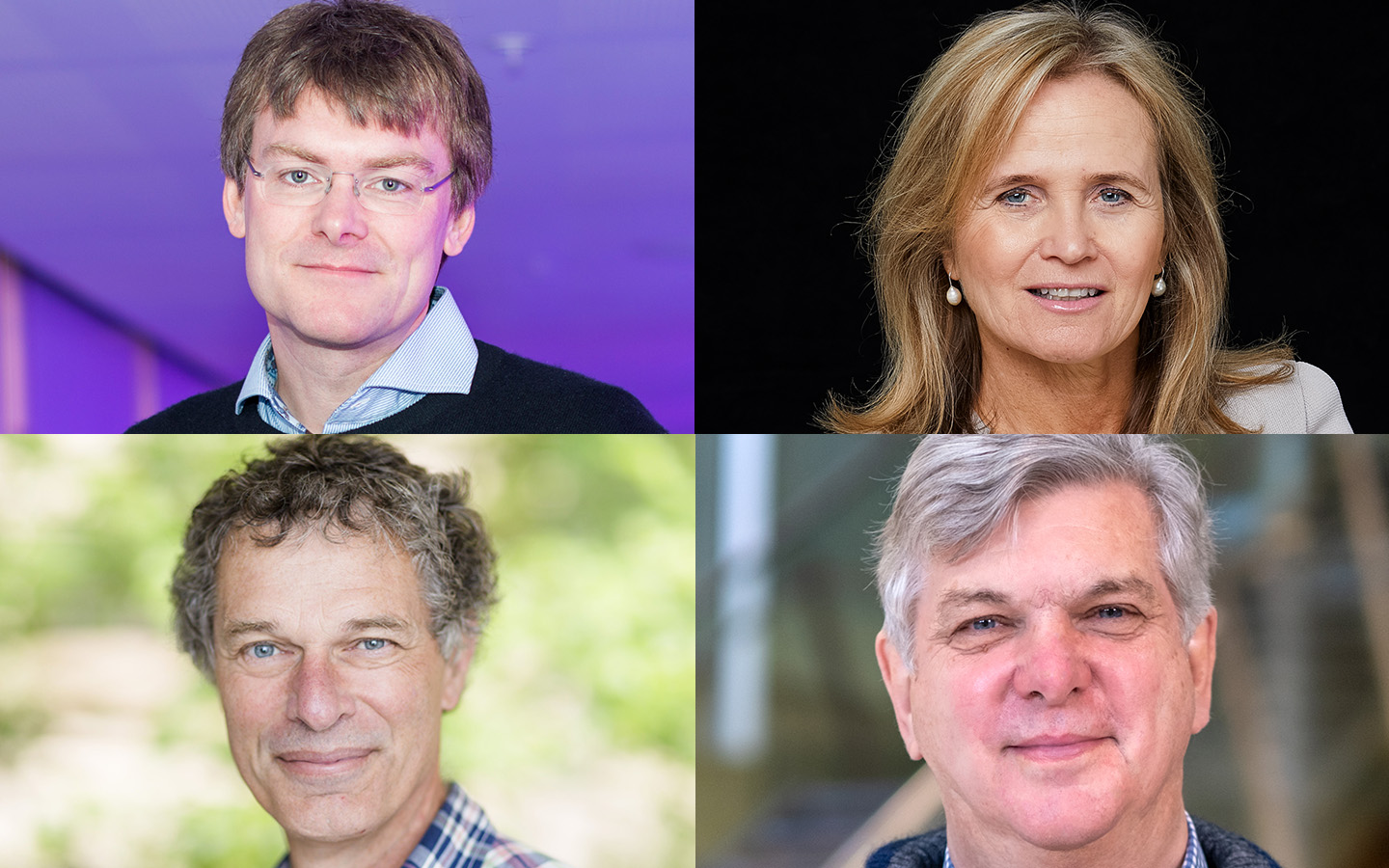New Australian Academy of Science Fellows elected

Professor David Komander, Professor Sharon Lewin, Professor Peter Taylor and Professor Andrew Wilks have been elected new Fellows of the Australian Academy of Science, in recognition of their pioneering research and significant contributions to science. Professor Linfa Wang has been elected as a Corresponding Member.
Professor Komander, is a biochemist and cell biologist, and a recognised leader in the field of ubiquitylation. Ubiquitin Signalling Division Head at the Walter and Eliza Hall Institute (WEHI), Professor Komander has generated new tools to unveil the complexity and specificity of the ubiquitin code, and uncovered fundamental principles in ubiquitin chain assembly, recognition and disassembly by deubiquitylating enzymes (DUBs).
Professor Komander discovered OTULIN, a specialised DUB in inflammation, and described the human monogenic disease OTULIN-related autoinflammatory syndrome (ORAS). He determined the molecular basis for PINK1/Parkin-mediated mitophagy, a key ubiquitylation pathway derailed in inherited Parkinson’s disease.
His ultimate aim is the development of the first disease-modifying therapies for Parkinson's and other ubiquitin-based disorders.
Professor Lewin, Director of the Peter Doherty Institute for Infection and Immunity, is renowned worldwide for her leadership in infectious diseases, virology and HIV research. Her work transformed the understanding and clinical management of HIV, with her research establishing laboratory models to study HIV latency, tests measuring viral reservoir, and interventions reversing HIV latency in patients.
She was also at the forefront of Australia's response to the COVID-19 pandemic and greatly contributed to the public’s understanding of the virus.
Professor Peter Taylor, Chair of Operations Research at the University’s School of Mathematics and Statistics, is an applied mathematician specialising in applied probability and he has made important breakthroughs in analysing mathematical models for real-world systems impacted by random processes.
Professor Taylor’s innovations in computational methods have provided solutions in various fields, including telecommunication and data networks, patient flow in healthcare, epidemic modelling, extreme rainfall and bushfires, systems biology, blockchain modelling and designing systems to achieve economic results.
Professor Taylor said he is looking forward to advocating the role of mathematical sciences in Australia's discourse as a viable career option.
Professor Andrew Wilks, Honorary Enterprise Professor, co-founder and CEO of SYNthesis Research, is an oncologist and cancer cell biologist. Professor Wilks discovered and patented vital drug discovery targets, including JAK1 and JAK2, and their influence on cytokine signalling. He founded one of Australia's highly successful biotech companies, Cytopia, and led the Growth Regulation Laboratory at the Ludwig Institute of Cancer Research from 1988 to 1998, achieving significant advancements in signal transduction, neurogenesis, and angiogenesis.
Additionally, Professor Wilks co-invented and led the team delivering Momelotinib, a JAK inhibitor.
Professor Linfa Wang was elected a Corresponding Member, a special category within the Fellowship of eminent international scientists with strong ties to Australia who have made outstanding contributions to science.
Professor Wang, of the Programme in Emerging Infectious Diseases at Duke-NUS Medical School Singapore, and Executive Director of the Programme for Research in Epidemic Preparedness and Response, is one of the world’s leading experts in zoonotic diseases, bat immunology and pathogen discovery.
The University congratulates the elected Fellows and Corresponding Members and commends their significant contributions to science.
Established nearly 70 years ago, the Australian Academy of Science is a Fellowship of more than 520 of the nation's top scientists who live and work in Australia and around the world. The Academy provides independent, authoritative and influential scientific advice, promotes international scientific engagement, builds public awareness and understanding of science, and champions, celebrates and supports excellence in Australian science.